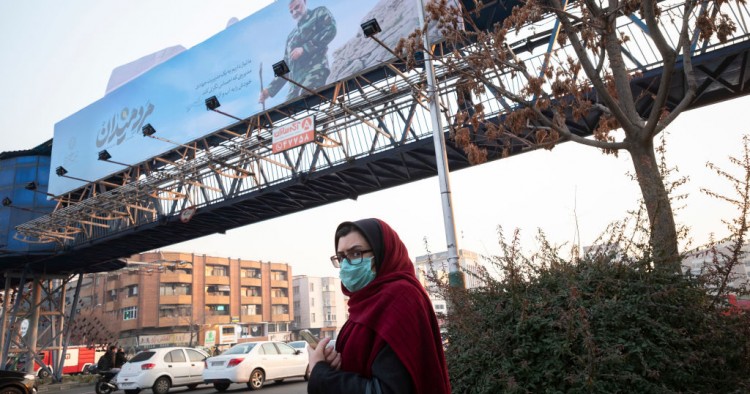Contents:
- Looking to 2021 as a year of recovery
- On Iran, there’s a chance for diplomacy, but expect a bumpy ride
- Another troubled year for Turkey
- The GCC prepares for a starkly different regional and global environment
- Economic, political, and security challenges abound as Iraq enters 2021
- A bleak outlook for Syria
- A watershed year for Afghanistan in 2021
- Egypt: A new year and a time for tough choices
- New year, new administration, new chance for Libya
- The Palestinians in 2021: An improvement, but still plenty of hurdles
- More stagnation in Algeria
- Between COVID-19 and the election, Israel’s future looks cloudy
Looking to 2021 as a year of recovery
Paul Salem
President
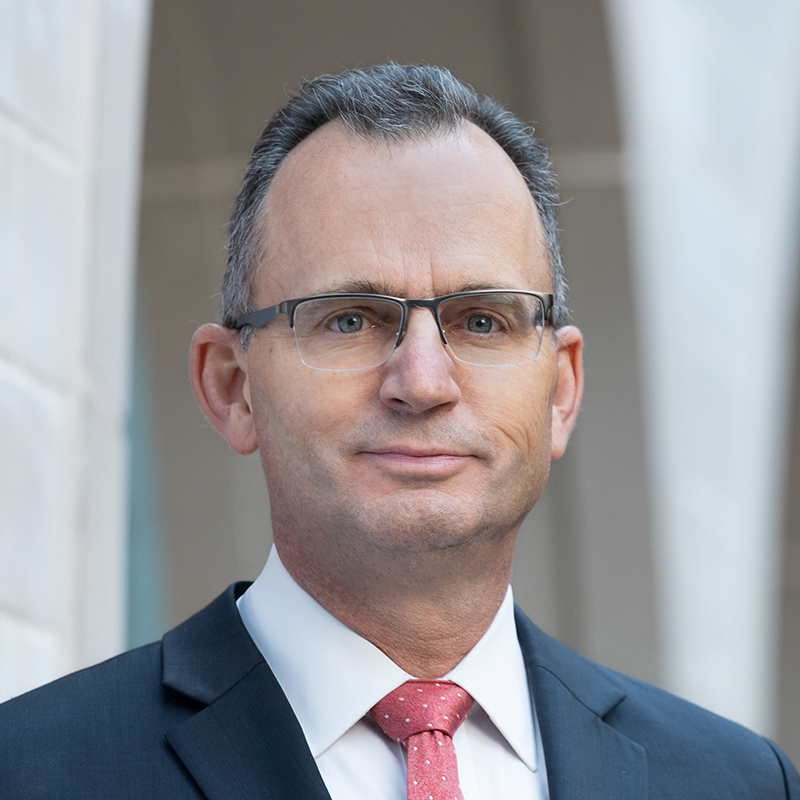
Broadly speaking, the Middle East in 2021 will be looking to emerge and recover from the COVID-19 pandemic and its socio-economic effects. The pandemic has already taken hundreds of thousands of lives and caused economic contraction throughout the region. The crisis is hitting hard in its current second and third waves, and vaccines have slowly started to trickle into some of the richer countries. The larger countries will be lucky if they can beat back the pandemic by the summer, in order to begin economic and social recovery in the third and fourth quarters. Much will depend on international and regional cooperation to ensure that vaccines are available and distributed throughout the Middle East. Most challenging will be populations in conflict zones or failed states such as Yemen, Libya, and parts of Syria, as well as the millions of refugees and displaced persons.
On a geopolitical level, the region will be adjusting in 2021 to a new U.S. administration. Many eyes will be focused on how the incoming Biden team reengages with Iran — including a potential return to the 2015 nuclear deal and additional negotiation streams over nuclear, missile, and regional intervention issues. Of course, the Trump administration still has a couple more weeks in office and might spring some relevant surprises vis-à-vis Iran before Joe Biden takes over. And Iran faces its own presidential elections in June, and those internal politics might directly impact the course of a thaw — or a heating up — with the new Biden administration.
On the Arab-Israeli front, Biden will likely consolidate the trend of normalization agreements with Israel, but rebuild relations with the Palestinians, and move to revive direct talks between the Israelis and Palestinians. On Syria, the Biden administration is eager to maintain leverage there, and to push for a revival of the Geneva political process. They will need Russian cooperation in this endeavor. Fragile states like Lebanon — and increasingly, Iraq — will require special support and attention, both regionally and internationally.
The U.S. and other regional and international players could go a long way in trying to end the disastrous war in Yemen, and also bring the conflict in Libya to a close. Neither conflict is as intractable as those in Syria or Afghanistan, and concerted political and diplomatic effort could bring desperately needed peace and relief to the suffering population of Yemen, and bring stability to Libya as well.
As 2020 has taught us, years are often defined but what is not seen from the perspective of early January. But people in the region are looking to 2021 to dig out from under the enormous strain of the pandemic and socio-economic crisis of 2020. Let’s hope that their perspective is well founded, and that real progress can be made both in terms of pandemic roll-back and recovery, and that progress can also be made in terms of de-escalating civil wars and regional conflict in this troubled region.
Follow on Twitter: @paul_salem
On Iran, there’s a chance for diplomacy, but expect a bumpy ride
Alex Vatanka
Director of Iran Program and Senior Fellow, Frontier Europe Initiative

Despite factional differences, the leadership in Tehran was collectively relieved to see Joe Biden win the U.S. presidency. Donald Trump’s “maximum pressure” campaign has not only decimated Iran’s economy but also removed all options for diplomacy. Absent a last-minute decision by Trump to strike Iran militarily in his final days in the White House, Tehran hopes 2021 will bring a resumption of negotiations with Washington.
The first hurdle is to shape Biden’s expectations. For the U.S. to rejoin the 2015 nuclear deal is relatively simple unless Biden opts to shoot for an amended deal. Tehran’s fear is that Washington might insist on including Iran’s missile program and regional agenda as part of any future talks. In the coming weeks and months, Iran will push for Biden to resist this temptation. Recent moves by Iran, from announcing a return to enriching uranium to 20 percent to reaffirming support for groups like Hezbollah and Hamas, are part of Tehran’s effort to signal to Biden that broadening the conversation to include Iran’s other troubling actions will first require a quick return by Washington to the 2015 nuclear deal and the removal of sanctions. Then, and only then, might Iran be open to discuss other contentious matters.
That openness will be driven by two factors. It will first depend on the willingness of the U.S. and its allies in the Middle East to hold a two-way conversation where Tehran too can address its threat perceptions. The core focus here will be on the receptiveness of the Gulf states, particularly the UAE and Saudi Arabia, to move in this direction. If they do, they’ll need plenty of encouragement and assurances from Washington and key European states. In such a scenario, 2021 might be the year where signs of a new regional security understanding emerge. Given the realities of today, such a scenario seems doubtful, and yet it is both possible and essential for any meaningful process of American-underwritten de-escalation in the Middle East. Iran and the U.S. and its allies can identify the more realizable policy files to reach an agreement on. To begin by asking Iran to give up its missile program is a non-starter. Alternatively, a compromise to end the Yemeni war might be just the sort of low-hanging fruit that can generate goodwill among the principal regional actors and weaken the prevailing and disastrous geopolitical zero-sum mentality.
The other factor is what the Islamic Republic chooses to be as a political model going forward. The presidency of Hassan Rouhani is coming to an end in June. The Revolutionary Guards are paving the way to install one of their own as the next president, doubtless with the support of Supreme Leader Ayatollah Ali Khamenei, the perennial godfather of hardline Islamist militant ideologues. The presidency in the Iranian system is a weak position and yet it matters symbolically. The 2021 elections could be the final nail in the coffin of the illusion that ordinary Iranians have a say. With that, the Islamic Republic will be more firmly in the hands of a clique of hardline ideologues who have a record of overstating their capabilities and miscalculating. This group in Tehran believes that the U.S. and its allies, such as Israel and the Gulf states, only understand force. In short, while there is a window of opportunity for diplomacy in 2021, it is still prudent to anticipate a bumpy ride in Iran’s relations with its neighbors and with the U.S. under a Biden presidency.
Follow on Twitter: @AlexVatanka
Another troubled year for Turkey
Gönül Tol
Director of Turkey Program and Senior Fellow, Frontier Europe Initiative

2020 ended with an unpleasant development for Turkey-U.S. relations. On his way out of office, U.S. President Donald Trump decided to impose sanctions on Turkey for its purchase of the Russian S-400 missile system, targeting its defense procurement agency and four employees, after having shielded Ankara for over a year. Yet in his year-end meeting with the Turkish media, Foreign Minister Mevlut Cavusoglu struck a conciliatory tone, saying Turkey was ready to mend ties with the United States and others in the region.
Despite the upbeat messaging coming out of Ankara about its foreign relations, 2021 is likely to be another troubled year for the country. President Recep Tayyip Erdogan recently said that Turkey would like better ties with Israel, which have remained tense since the two countries expelled envoys over Gaza violence in 2018. Turkey probably hopes to normalize ties with Israel to gain goodwill from the incoming U.S. administration. But a more significant driver is Ankara’s quest to change the status quo in the eastern Mediterranean, where Turkey has been at loggerheads with Greece and Cyprus over energy rights and maritime boundaries. Israel has been part of the anti-Turkey front there, which also includes Egypt. Turkey tried gunboat diplomacy without much success, and Ankara seems to have concluded that diplomacy might be a more effective tool. Given Turkey’s long history of troubled relations with Greece and Cyprus and the grim prospects for a Turkey-Egypt normalization due to Erdogan’s reluctance to mend ties with a coup leader, Israel might be seen as Turkey’s best bet. But Israel is not quite as enthusiastic about restoring ties at a time when it is normalizing relations with several Arab countries that also are at loggerheads with Ankara. The upcoming Israeli elections make it even more difficult for Israeli leaders to mend ties with a country that recently hosted key Hamas figures. Further complicating matters are the close relations Israel has cultivated with Greece, Cyprus, and Egypt, which it will not want to jeopardize to please Erdogan.
Libya is going to cause another headache for Ankara. December was a stressful month for Turkey’s defense minister, Hulusi Akar, who visited Libya amid growing threats from Khalifa Hifter that he would target Turkish forces in the country. In a surprising development that is likely to complicate Turkey’s Libya policy, a high-level Egyptian delegation visited the Turkey-backed Tripoli government on Dec. 28, signaling a change in Cairo’s Libya policy, which has long relied on an alliance with eastern forces, including Hifter. If Egypt expands its influence vis-à-vis the Tripoli government at Turkey’s expense, 2021 might prove to be a complicated year for Turkish gains in the country.
Syria will be another problematic theater for Turkey. Turkey-Russia disagreement over Idlib is only likely to get worse in the coming months, while a potential development could strain Turkey’s ties with the U.S. further. Turkey and the Free Syrian Army have been shelling the city of Ain Issa, located in Raqqa’s northern countryside and controlled by the U.S.-backed Syrian Democratic Forces (SDF), and Turkey-backed groups are ramping up their presence in the area, leading to fears that Turkey might be preparing for another operation in Syria, which will anger Washington.
Adding all of this to the dim prospects for the resolution of the S-400 issue with Washington and the potential for additional U.S. and EU sanctions over Turkey’s defense ties with Russia and its policy in eastern Mediterranean, there is little reason for the Turkish foreign minister to be optimistic about the new year.
The GCC prepares for a starkly different regional and global environment
Gerald M. Feierstein
Senior Vice President

As 2021 dawns, the member states of the Gulf Cooperation Council (GCC) are preparing for a dramatically different operating environment than they have faced in the past several years. The transition from the Trump administration to the Biden administration will bring a far more skeptical set of interlocutors into decision-making positions at the White House, State and Defense Departments, and elsewhere around Washington. There are already signs that the GCC states are adjusting to the new realities:
-
Although a Trump administration priority, the GCC states may calculate that their normalization of relations with Israel, the “Abraham Accords,” will smooth their relations with the Biden administration as well.
-
The Saudi court decision on Loujain al-Hathloul to release her after two months in prison, cutting her six-year sentence to time served, could be meant as an olive branch to the new administration.
-
Saudi suggestions that they will press for an end to the intra-GCC conflict with Qatar would also remove a point of friction with the Biden team.
Despite these moves, the likelihood is that Saudi Arabia and the UAE, in particular, will face a rocky introduction to the Biden team. The ongoing civil war in Yemen is a key point of contention for the incoming administration, which includes a number of nominees for senior positions who have been sharply critical of the Saudi intervention there. Washington’s relations with Riyadh and Abu Dhabi may be challenged in the opening months of the new administration by congressional opposition to recent arms sales, including the F-35 aircraft for the UAE, and a new bipartisan push for a War Powers Resolution ordering an end to U.S. support for the Saudi-led coalition in Yemen. Donald Trump vetoed the resolution in 2020. Joe Biden indicated at the time that he would favor it.
Mapping out a new approach to Iran will also be a source of strain in the relationship. On the campaign trail, the president-elect said that he would favor a return to the Iran nuclear deal if Iran committed to return to abiding by its terms. But the GCC states have insisted that they should be involved in any new outreach to Tehran and they will want to ensure that a new agreement addresses their concerns that go beyond the Iranian nuclear program. It’s unclear how the Biden administration will manage their insistence.
Finally, Riyadh’s expressed desire to end the stand-off with Doha has been supported by statements from Manama and Abu Dhabi. A reconciliation announcement may come as soon as the Jan. 5 GCC Summit to be hosted by the Saudis with all six of the GCC leaders committed to attend. But recent tit-for-tat accusations by Bahrain and Qatar over incidents in their territorial waters, as well as claims that the UAE or Saudi Arabia hacked dozens of al-Jazeera journalists, suggest that any move to paper over differences within the GCC is likely superficial and will only serve as prelude to the next cycle of conflict.
Economic, political, and security challenges abound as Iraq enters 2021
Randa Slim
Senior Fellow and Director of Conflict Resolution and Track II Dialogues Program

Iraq enters 2021 facing a host of domestic challenges, the most acute of which is its economic situation. According to the World Bank, Iraq’s economic performance in 2020 was its worst since 2003. Oil revenues experienced a steep decline, falling from $78.53 billion in 2019 to $42.47 billion in 2020. The OPEC+ agreement, which imposes a quota on Iraq’s oil exports, and the continuing global recession have strained Iraq’s ability to repair its finances in 2021. Even if oil prices were to recover this year, absent a serious economic reform process, especially over its public wage and pensions bill, Iraq’s economic woes will persist, pushing more Iraqis into poverty (with poverty rates projected to increase by 7-14 percent), diverting investments away from productive sectors, reducing foreign reserves, and thereby increasing the country’s political and economic fragility. Leaders of political parties, who have been the largest beneficiaries of Iraq’s rentier economy, prefer to avoid voting for the tough economic reforms laid out in the government’s white paper, betting instead on potential increases in oil prices as the global economy starts recovering from the impact of the COVID-19 pandemic. The 2021 federal budget, approved by the Iraqi cabinet last December, still awaits Parliament’s approval.
On the political front, it remains to be seen whether the Iraqi government will be able to fulfill its promise of holding early elections, slated for June 6, despite the recent insistence by government officials that all the requirements are in place. While the new electoral law passed by Parliament became law on Nov. 9, there is still a dispute over the mechanism to replace judges retiring from the Federal Supreme Court, which rules on constitutional disputes, that must be resolved prior to holding elections. Last December, after meeting with the president, the speaker of the Parliament, and leaders of political blocs, Iraqi Prime Minister Mustafa al-Kadhimi called for a national dialogue to ensure the political and security conditions to conduct free and transparent elections are in place and address concerns expressed by different political parties about procedural aspects of the voting process.
The political and security environment in Iraq in 2021 will be largely affected by the upcoming negotiations between the U.S. and Iran over the latter’s nuclear program. If the Biden administration were to rejoin the 2015 nuclear deal and Iran were to recommit to its commitments as stipulated in the agreement, this will have a major impact on the behavior of Tehran-funded Iraqi militias. Throughout 2020 these groups have escalated their targeting of U.S. diplomatic and military assets in Iraq as part of Iran’s response to the U.S. “maximum pressure” strategy. While a U.S.-Iran deal will not bring these militias under Iraqi government control, it would weaken their “resistance” narrative. If they were to perform poorly in the parliamentary elections later this year, their claim to representing a large segment of the Iraqi society will further be undermined, strengthening the position of the different political parties, including protest groups, that have been calling for reining in these militias and curtailing their financing.
Follow on Twitter: @rmslim
A bleak outlook for Syria
Robert S. Ford
Senior Fellow
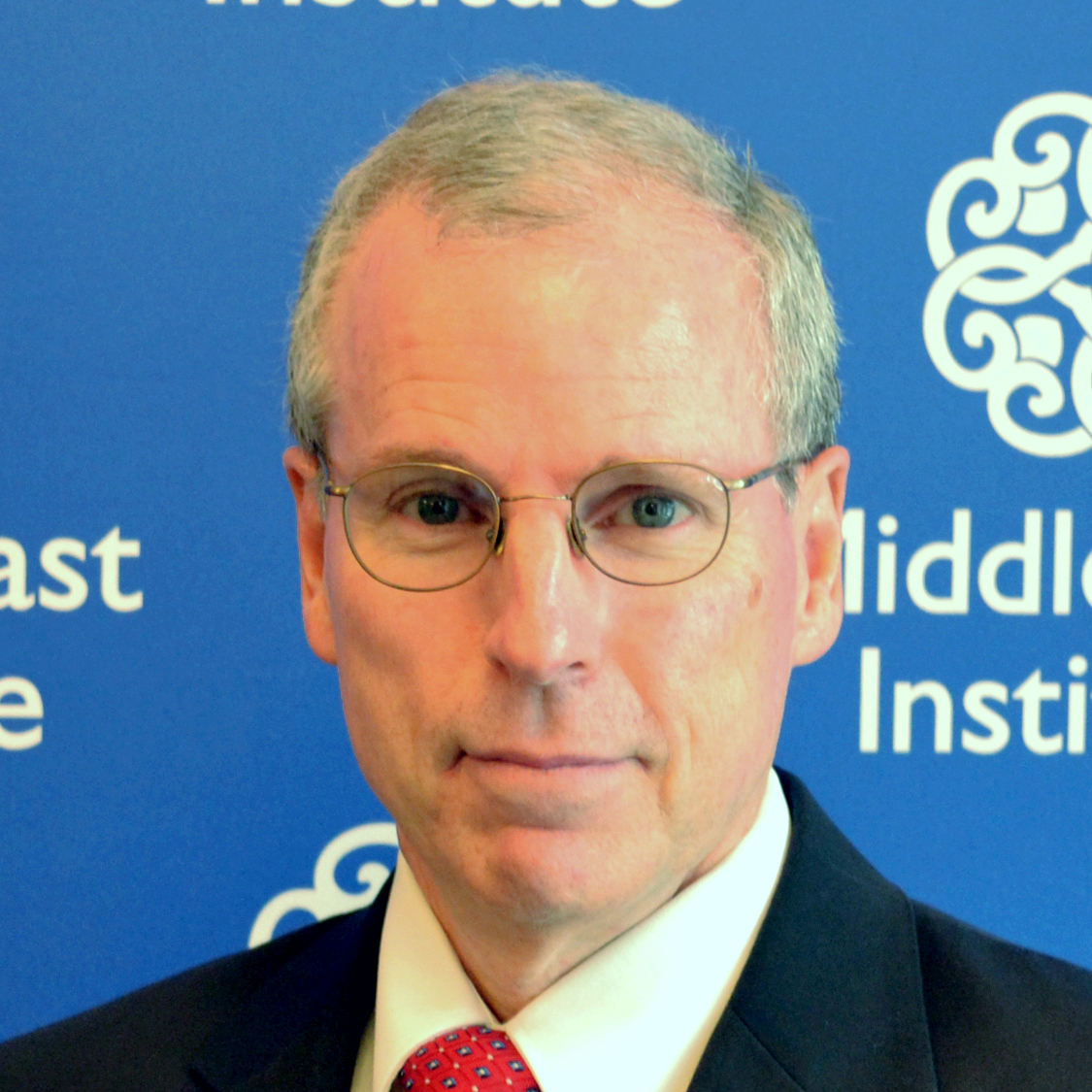
Foreign states occupying parts of Syria will further entrench in 2021 as the civil war evolves into a stalemate. Turkey redeployed military forces into the northwestern province of Idlib, where 2.5 million displaced Syrians refuse to return to former homes in government-controlled territories. Turkish rejection of a Syrian Kurdish faction’s statelet in northeastern Syria will provoke new threats of Turkish incursions that Moscow and Washington will try to contain. Meanwhile, Iran has introduced more allied militias into southeastern Syria. Into this volatile mix the new Biden administration appears set to maintain a small special operations presence in eastern Syria, where frictions between local communities and the American-backed Syrian Democratic Forces (SDF) militia are slowly rising.
There is no political solution in sight. Russia’s Astana process with Turkey and Iran will try to maintain the tenuous cease-fire in Idlib between Damascus and its Russian ally on one side and Turkey and its Syrian proxies on the other. New eruptions there provoked by Damascus are possible. Moreover, Russia could move in the U.N. in July to further restrict Idlib civilians’ access to outside humanitarian aid. The U.N.-sponsored talks on changing the constitution are unlikely to make major progress in 2021, despite Western financial pressure, led by Washington, that seeks to extract political concessions from an unrepentant Bashar al-Assad. Far from opening up the ruling system, Assad will win reelection to a seven-year term in presidential elections later this year. His strategy is to hang on until the external environment improves. A U.N. official’s criticism on Dec. 29 of the harmful impact of American sanctions on Syrian civilians is the kind of development that will encourage Assad to hold out; he recalls how world support for American “smart” sanctions against Saddam Hussein eroded with time.
In the meantime, Assad is uninterested in the return of the nearly 5.6 million Syrian refugees, and his government lacks the resources to launch large-scale reconstruction of shattered infrastructure and housing. Warlords allied to Assad and their business backers will steadily capture new properties and bits of the reduced economy in return for their loyalty. The coronavirus is rampant but the state health system won’t acknowledge the scale of the pandemic, much less address it. Media attention on Syria will diminish while the already spare living standards of the vast majority of Syrians will also further shrink.
A watershed year for Afghanistan in 2021
Marvin G. Weinbaum
Director, Afghanistan and Pakistan Studies

Afghanistan enters the new year with a sharp upsurge in violence, a sputtering peace process, and growing fear of abandonment by its long-term ally the United States. The beleaguered country is also having to cope with the coronavirus pandemic and the familiar challenges posed by a struggling economy, squabbling political elites, and dysfunctional governance. Concerns are rising over the future of the current government and even the survival of Afghanistan’s Islamic Republic.
The security environment is rapidly deteriorating, and attacks attributed to the Taliban or Islamic State-Khorasan Province are having their intended effect of reducing the people’s belief in the ability of the Kabul government to defend them. In coming months, it is anticipated that the Taliban will continue to extend its influence across the provinces and further concentrate on infiltrating those districts around the provincial capitals and Kabul. With U.S. troop levels expected to be down to 2,500 early in the year, and the training and advising they once provided already sharply diminished, Afghan security forces will be hard pressed. Although Afghan troops have conducted ground operations largely independently for some time, they will face their strongest test if the U.S. completes a troop pull-out by May — as it is committed to do in its Feb. 2020 agreement with the Taliban — and thus also withdraws the air support on which Afghan forces under duress have become so reliant.
Hopes raised in 2020 of a possible break-through in efforts to realize a negotiated peace have faded. Although the new year begins with the recent settlement of procedural and other issues that for months have stymied negotiators in Doha, ahead in 2021 loom innumerable tough decisions needed to define a power-sharing government and determine the character of a future state. The Taliban’s refusal to entertain a cease-fire and its reluctance to date to agree to compromise on significant issues signal difficult days for the talks in Doha. The very real possibility exists of a breakup of talks should there continue to be an escalation of Taliban-directed violence or a Biden administration decision to defy the Taliban by opting to retain a U.S. counter-terrorist force in Afghanistan beyond April.
The economy will be under further strain in the coming months as well. Although international donors have recommitted to providing financial backing for the regime, the level of support has already dropped, and untamed corruption continues to siphon off funds and erode confidence in government. Many of Afghanistan’s leading entrepreneurs and most skilled, educated individuals are exploring their options in leaving the country or have already left. The coronavirus has not yet heavily impacted the economy but that could change, as little has been done to contain its spread by convincing Afghan citizens to alter their social behavior. There is scant indication that Afghanistan’s dire situation has induced the country’s political elites to put aside their bitter personal differences. 2021 is shaping up to be a watershed year for Afghanistan.
Egypt: A new year and a time for tough choices
Mirette F. Mabrouk
Senior Fellow, Director of the Egypt program
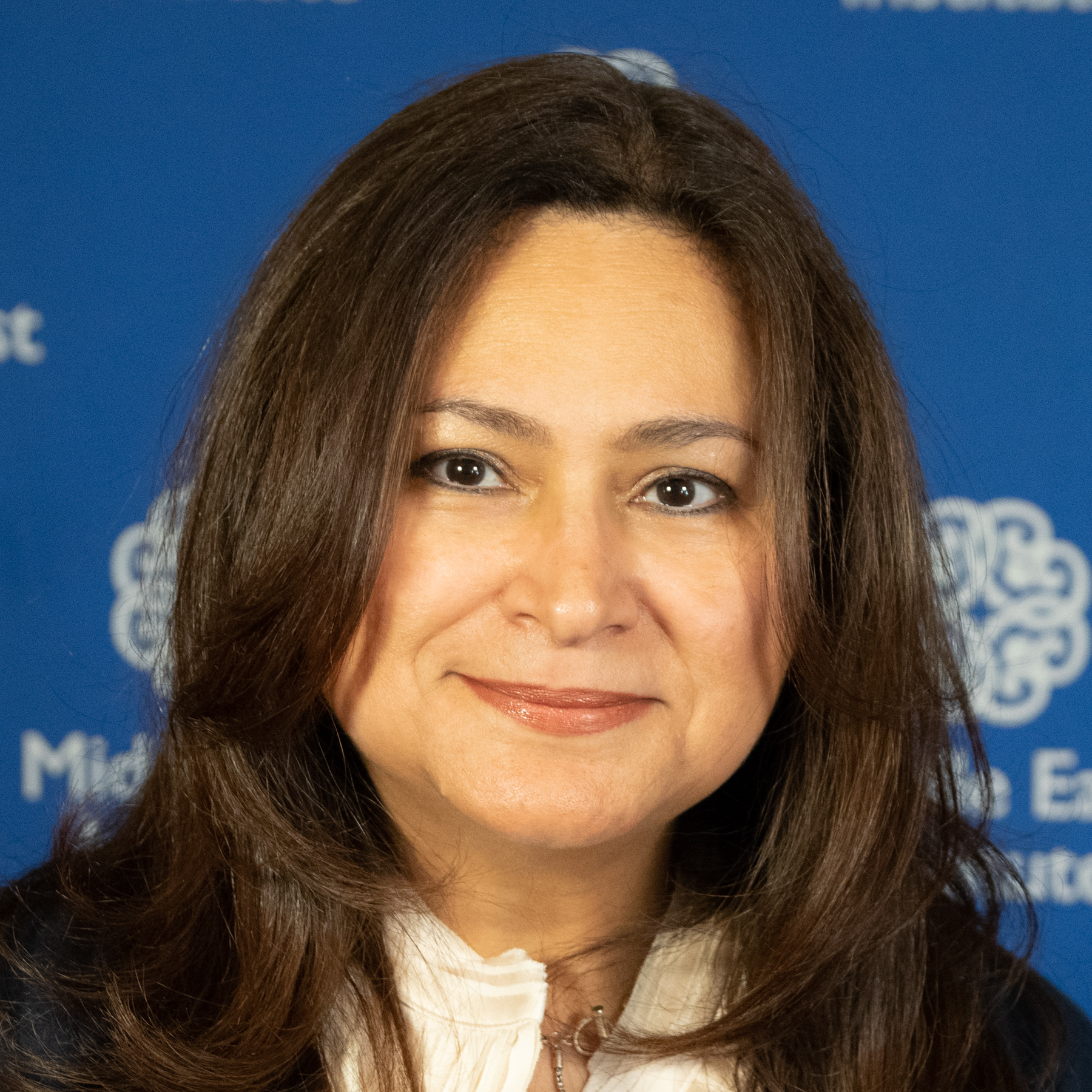
The pandemic landed Egypt squarely in a quagmire in 2020, along with much of the rest of the world. However, its ability to drag itself out will depend almost entirely on its own governance and how it chooses to tackle the raft of institutional problems the pandemic exposed.
The issues are myriad, daunting, and both domestic and international. Before the extent of the fallout began to be apparent in March, Egypt’s economic indicators had been showing the fruits of a stringent IMF-backed reform program that had helped stimulate growth, chip away at debt, wrestle down inflation, and boost foreign reserves. The fact that this came at a huge cost to the average Egyptian, who had to cope with rising prices on almost all goods, and a corresponding rise in the poverty rate, was put to one side to be dealt with later. The economic fallout from the pandemic meant that “later” was a luxury that no one could afford. Apart from wreaking havoc among patients, COVID-19 exposed serious structural flaws. One of them was persistently low investment in human resources, notably the country’s over-burdened health care system. Egypt was already struggling with low numbers of health care professionals, many of whom were leaving for better paying jobs abroad. Not only did the pandemic expose the system’s myriad flaws, health care practitioners who criticized the government’s handling of the crisis were harshly dealt with. If the government is to have any chance at fixing the sector’s problems, then in addition to increased spending and structural reform, it will have to correct its treatment of health care providers, or risk irreparable harm.
On the economic front, the pandemic also made it abundantly clear that if Egypt has any chance at competing in an increasingly cutthroat global market, it will have to make some tough choices. While it deserves credit for its recent economic reforms, they’re band-aids in lieu of surgery. Egypt has typically relied heavily on fiscal and monetary policies to stimulate economic growth, as well as four sectors — remittances, tourism, the Suez Canal, and energy — that are deeply susceptible to external shocks. When things get really tough, a currency devaluation follows, buying a little time, but Egypt’s persistent problems still need to be tackled: high unemployment, particularly among the youth, high imports and trade deficits, below par investment in human capital, and poor social justice. Shifting business regulations dampen foreign investor interest, and the local private sector is unable to take up its natural role of driving growth due to state involvement. If Egypt does not make a start on institutional reform, it will lose any competitive edge it had carved out and its ambitious plans to position itself as a regional hub and gateway to Africa will be unlikely to come to fruition.
Egypt also faces significant foreign policy challenges, among the most prominent of which is the potential threat of water loss posed by the Grand Ethiopian Renaissance Dam, with negotiations that have spun around in circles for the better part of a decade. Egypt will also have to solidify its regional standing and relationships. Rivalry with Turkey last year led to much excitement in the Mediterranean Sea and Libya, with chest-banging on both sides. It eventually led to an Egyptian declaration of the Libyan towns of Sirte and Jufra being red lines, after Turkish incursions.
This year, however, is starting off on a calmer note. Egypt has always had a fairly conservative foreign policy stance, one that is consistently independent — no mean feat considering its economic reliance on various regional allies. An Egyptian delegation recently met with Government of National Accord officials in Tripoli, after years of supporting the Libyan National Army, along with the UAE, Russia, and France, and there have been quiet discussions with Turkey. Egypt is also attempting to breathe some life into the moribund Israeli-Palestinian talks. While Egypt has always been a major player on this issue, the recent spate of Arab normalizations with Israel is likely to make the Palestinian position even more precarious and to cut into Egypt’s leverage.
And of course, there are the areas where domestic and international policy overlap, chief among them Egypt’s escalating crackdown on civil society. The recent arrest of three members of the Egyptian Initiative for Personal Rights led to an unprecedented international outcry and their subsequent release. While Egypt has always fiercely resisted any interference in its domestic affairs, and international players have largely been content to make ineffectual tutting noises, there does appear to have been a significant shift. Last month Congress made disbursement of $75 million of a total of $1.3 billion in military aid to Egypt conditional on the release of political prisoners without providing the U.S. State Department the option to waive the conditions in the interests of U.S. national security. The week before, the EU Parliament passed a resolution urging member states to reconsider EU-Egypt relations and implement more stringent monitoring and accountability mechanisms.
Egypt needs to be able to pivot. Rather than continuing to view such actions as interference it should view an investment in human and civil rights as an investment in its own security and potential growth. This year marks the 10-year anniversary of the Arab Spring and if there was one lesson that should have been learned, it’s that security solutions to structural problems are only ever a temporary fix.
Follow on Twitter: @mmabrouk
New year, new administration, new chance for Libya
Jonathan M. Winer
Non-Resident Scholar
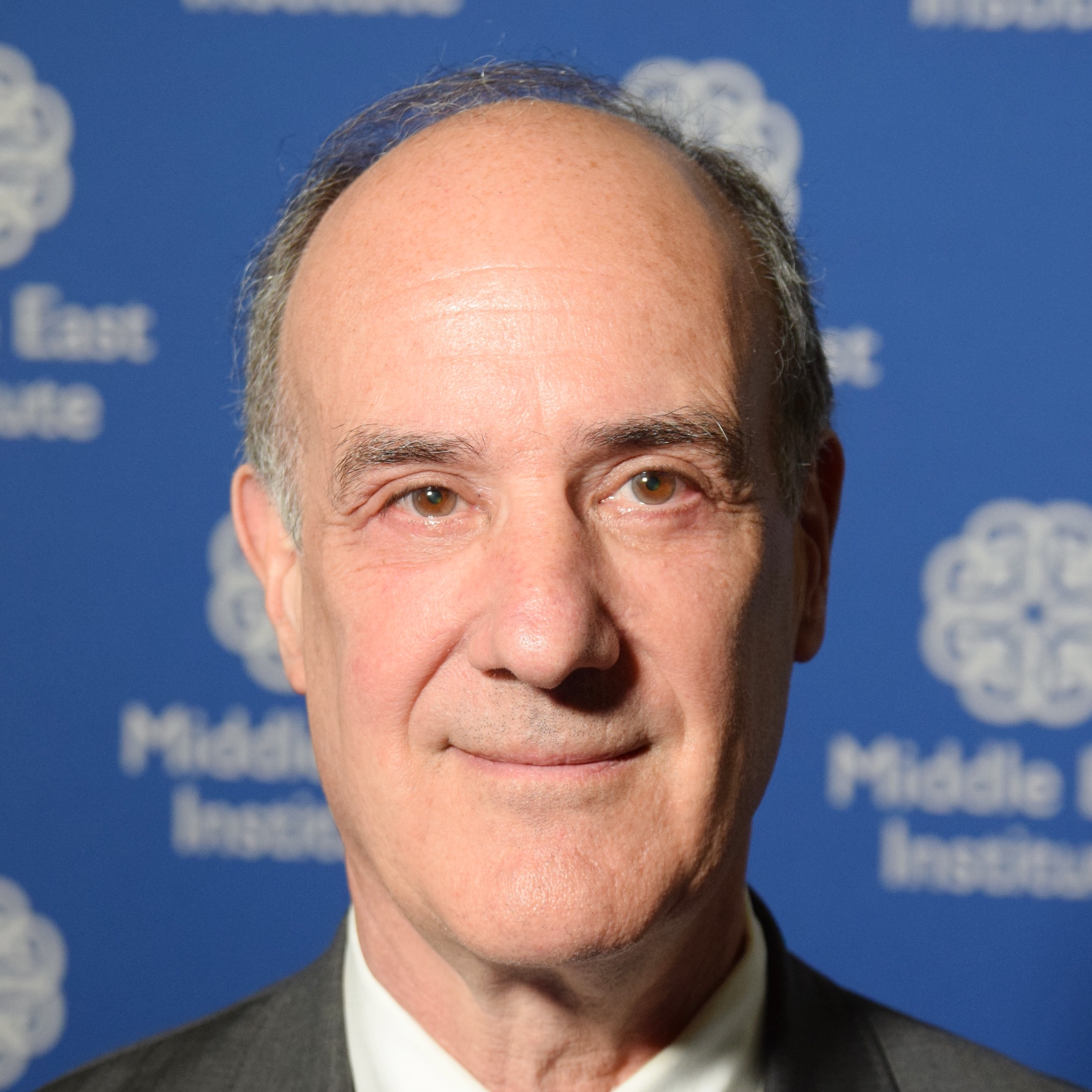
Libya was by no means the only failure of the Trump presidency, but Donald Trump’s inconsistent and feckless handling of Libya played a meaningful role in the country’s descent into renewed civil war in 2019.
Now, with Khalifa Hifter’s failed effort to take Tripoli concluded despite continued saber-rattling, both Libyans and their foreign sponsors seem increasingly ready to find alternatives to conflict that could generate a new interim government through the U.N.-sponsored political process.
Following the surprising Dec. 22 withdrawal of Bulgarian Nikolay Mladenov after he had at last won approval to become the U.N.’s new special representative of the secretary-general (SRSG) for Libya, Acting SRSG Stephanie Williams will once again be trying to move forward with a deal whose terms have been largely agreed to by the 75 Libyans participating in the Libyan Political Dialogue Forum. Its mission is to agree on a pathway that takes the country forward to elections on Dec. 24, 2021, the 70th anniversary of Libya’s independence.
For months, the main sticking point always faced by Libyan-to-Libyan political negotiations has been agreeing on who will get what positions as a result of any deal, even one that is supposed to be the final, short-term, transition to a government fully elected by the Libyan people.
Russia and Egypt have been hosting meetings with Libyans representing the Tripoli-based Government of National Accord in a shift from their past support of Hifter’s efforts to conquer the country. But the Russian and UAE military presence in Libya remains, as well as the presence of forces of unspecified others. Turkey continues to warn that it won’t leave Libya anytime soon, despite November’s agreement by Libyans to have all foreign forces depart by the end of January 2021.
A new Biden administration has tools that could help drive events forward in a more constructive direction. They include recognizing and rewarding peacemakers and naming and shaming spoilers, internal and external, especially those who continue to violate the still-in-force U.N. arms embargo. Vigorous U.S. re-engagement at senior political levels could yet make enough difference in changing the environment to give peacemakers a better chance at enabling Libyans to strike necessary deals to allow the country to move forward.
The Palestinians in 2021: An improvement, but still plenty of hurdles
Khaled Elgindy
Senior Fellow, Director of Program on Palestine and Palestinian-Israeli Affairs
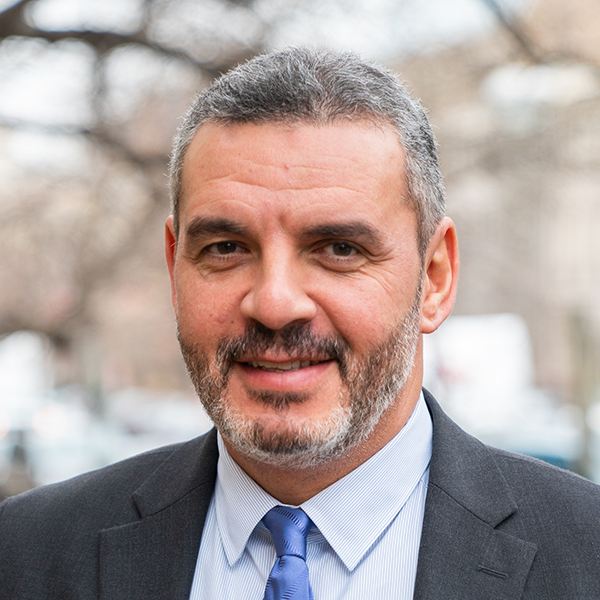
With a coronavirus vaccine on the horizon and the end of the Trump administration in sight, 2021’s prospects are already looking significantly better for Palestinians than the previous year. Nevertheless, an end to the pandemic — and the human and economic devastation that has accompanied it — as well as any potential political benefits are likely to face major hurdles in the coming year.
As Israel continues to vaccinate its citizens on both sides of the 1967 border at a record-setting pace, the vast majority of Palestinians in the occupied territories may need to wait weeks or even months to gain access to the vaccine. The Palestinian Authority (PA) has reportedly acquired some 4 million doses of the Russian coronavirus vaccine, known as Sputnik V, for the 4.8 million Palestinians in the occupied territories. Both the efficacy of the vaccine and the PA’s timetable for rolling it out, however, remain uncertain. The Gaza Strip, home to roughly 2 million Palestinians and around one-fourth of the 160,000 total COVID-19 cases in Palestine, is especially vulnerable as health officials in the impoverished and besieged enclave lack the financial and logistical means to safely store and distribute the vaccine.
At the political level, Palestinian leaders will be looking to President-Elect Joe Biden to follow through on his pledges to reverse the most damaging aspects of Donald Trump’s policies in a bid to salvage what remains of a two-state solution, most of which could occur during the administration’s first year in office. Chief among these will be restoring U.S. assistance to the PA and to UNRWA, the U.N. agency that provides vital health, educational, and other services to Palestinian refugees, although both are likely to face opposition, particularly from congressional Republicans. Biden is also said to be looking for ways to reopen the U.S. consulate-general in Jerusalem along with the Palestine Liberation Organization (PLO) embassy in Washington, although the latter in particular will need to overcome legal hurdles as well as likely opposition from Congress.
However, Biden has said he would not reverse Trump’s recognition of Jerusalem or move the U.S. embassy back to Tel Aviv. Moreover, beyond a restoration of the pre-Trump status quo (or some approximation of it), 2021 is unlikely to see any major breakthroughs on the diplomatic front — both because the local, regional, and international conditions are not conducive for successful negotiations and because Biden is unlikely to make an Israeli-Palestinian settlement a top priority of his administration.
Beyond the dim prospects for diplomacy and the ongoing public health crisis, the most significant developments may be in the realm of domestic politics — such as they are. On Jan. 2, Palestinian President Mahmoud Abbas reiterated his commitment to holding long-delayed legislative and presidential elections, as well as for the Palestine National Council, the PLO’s long-dormant Parliament-in-exile. The elections, which are part of the on-again/off-again process of reconciliation between Abbas’s Fatah faction and Hamas, could take place as early as mid-2021 — all of which seems overly optimistic.
Yet, while previous reconciliation efforts and calls for elections have repeatedly come to naught, given the dim prospects for a diplomatic breakthrough and the urgent need for coordination between the West Bank and Gaza authorities on the vaccine rollout, Palestine’s warring factions may have no choice but to move ahead with some sort of reconciliation. Regardless of what may or may not transpire on the domestic or diplomatic fronts in 2021, one thing remains certain: Israel’s occupation — now in its 54th year — will continue unabated.
Follow on Twitter: @elgindy_
More stagnation in Algeria
Robert S. Ford
Senior Fellow

Algerian President Abdelmadjid Tebboune is pushing ahead with legislative and local elections later this year. The Parliament and cabinet must first approve an election law to govern conduct of the campaign and voting. A new election law reducing the state’s ability to restrict political activities while opening up the vote tabulation and appeals processes would indicate Tebboune’s government really is trying to encourage entry of new approaches into the political system. Harassment and detention of government critics in 2020 indicated the government aims at control, not opening. There is no sign that massive street protests will resume, but in response to the absence of a genuine political opening, many opposition parties will boycott the 2021 elections. Boycotts of the 2019 presidential election and the 2020 constitutional referendum reduced voter turnout. If this happens again, the 2021 legislative elections will reproduce the same ruling party majority as the existing, discredited Bouteflika-era Parliament. As if it were trying to turn attention elsewhere, sources around the government have increasingly pointed to an alleged threat to Algeria’s national security from Morocco.
The government is also struggling to reverse the economic slowdown resulting from the coronavirus pandemic. It hopes to launch a national vaccination campaign in January using a Russian vaccine, but gave no details. The World Bank and IMF projected that Algerian GDP would drop about five percent in 2020 and a cabinet minister acknowledged that half a million Algerians had lost their jobs due to the pandemic. Since the economy still depends on gas and oil exports for about 95 percent of foreign exchange receipts and almost half of government budget revenues, Algeria needs world energy prices to rebound in 2021. The government hopes tax incentives will spur small-business creation. It continues, however, to tightly regulate imports in order to minimize the use of dwindling foreign exchange reserves. Algeria is reluctant to seek financial help from the IMF and hopes instead to attract foreign investment from countries like China. There is little prospect for an immediate surge in investment or job creation. Tebboune might fire a few cabinet ministers in response to economic difficulties but that wouldn’t address the deeper economic and political problems afflicting Algeria.
Between COVID-19 and the election, Israel’s future looks cloudy
Paul Scham
Non-Resident Scholar

Israel is currently enjoying its status as the country that has inoculated the highest percentage of its population (13 percent) against COVID-19, four times the percentage of the runner-up. It is less happy with its upcoming March 23 general election, the fourth in two years. And there is a suspicion that the two facts are more connected than many observers would like.
Israel has had a sharply mixed record with the pandemic. It weathered the first wave better than almost all other Western countries but has been struggling since the summer, at some points having the highest infection rate in the world, and is currently in its third lockdown. Prime Minister Benjamin Netanyahu has taken a very visible role in arranging the purchase of enough doses to vaccinate the whole country and clearly hopes that the vaccines Israel has purchased (at very high prices) continue to arrive so the country is fully vaccinated by the time of the election, and that he will be rewarded at the ballot box.
Israel is vaccinating its Arab citizens but not Palestinians in the West Bank or Gaza. Under the Oslo Accords the Palestinian Authority (PA) has that responsibility, though under the Geneva Convention it falls on the “Occupying Power.” Israeli officials say the PA has refused to engage with them on the vaccination issue. Palestinians are apparently scheduled to receive a million doses in February of the AstraZeneca vaccine. Since thousands of Palestinians work daily in Israel, Israel cannot achieve herd immunity unless Palestinians achieve it as well — or Palestinian labor is cut off.
Israel’s political future for the coming year(s) is dominated by the upcoming election, which itself is dominated primarily by the record and personality of Prime Minister Netanyahu, not by questions of policy. The prime minister’s trial on charges of fraud, breach of trust, and bribery is due to restart in February, but Netanyahu hopes that a new, more right-wing Knesset will vote him immunity for prosecution while he remains in office.
Israel’s political party configuration has now fractured on both left and right, but with a clear move away from the center and left. The right-wing /religious/ultra-orthodox bloc, which was only a few Knesset seats larger than the left/center/Arab bloc, is now decisively ahead at 82-38 in a recent poll. The historic Labor party, polling at 1.1 percent, is far below the threshold for getting into the Knesset of 3.25 percent, and the primarily Arab Joint List has lost almost a third of its support since last year — and may well itself split before the election. Two new parties are competing for the large share of the electorate that voted in 2019 and 2020 for Benny Gantz’s Blue and White party, which has disintegrated and is polling at 2.6 percent.
However, the right-wing parties are themselves split over Netanyahu’s polarizing personality. Gideon Sa’ar, a veteran Likud MK, has formed a rival mainstream right-wing party, New Hope, now polling at 17 seats, only 12 below the Likud. While there is little question the right will dominate any new government coalition, the main issue will be who will lead it, Netanyahu or someone else?
All other issues seem to depend on that one. A new prime minister might find it easier to develop a relationship with the incoming Biden administration, given Netanyahu’s icy dealings with Barack Obama and warm embrace of Donald Trump. President-elect Joe Biden is not expected to make the Israeli-Palestinian conflict a priority, which will make the relationship somewhat easier. However, Biden’s apparent desire to resume American participation in the Iran nuclear deal under some new conditions will almost certainly meet stiff opposition from any Israeli government, as will any movement toward a two-state solution.
In short, between COVID-19 and the election, Israel’s future in the new year is cloudy, to say the least. The overarching issue is, unquestionably, the future of Benjamin Netanyahu: jail or the prime ministership?
Photo by Morteza Nikoubazl/NurPhoto via Getty Images
The Middle East Institute (MEI) is an independent, non-partisan, non-for-profit, educational organization. It does not engage in advocacy and its scholars’ opinions are their own. MEI welcomes financial donations, but retains sole editorial control over its work and its publications reflect only the authors’ views. For a listing of MEI donors, please click here.













